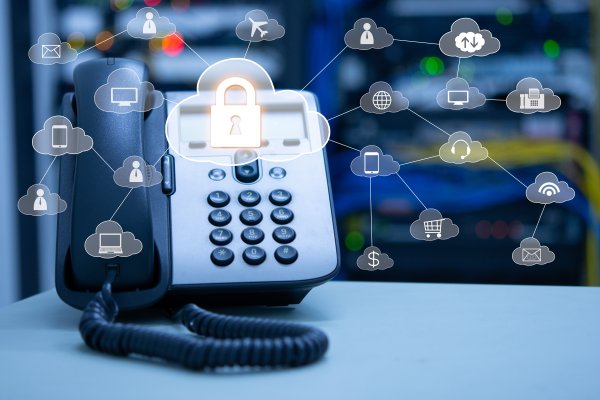Voice over Internet Protocol (VoIP) private box exchange (PBX) is a business telephone system that provides services similar to a standard PBX but it does it over the company's LAN or WAN data network than through the circuit switched networks used by Public Switched Telephone Network (PSTN).
A VoIP PBX system can switch calls between VoIP on local lines or between VoIP and traditional telephone users in the same way a PBX does. It can be hardware based or can be function as a software system.
VoIP PBX, also called IP PBX, can switch between VoIP users so that external lines can be shared among employees.
VoIP PBX manages VoIP calls in the same way that conventional PBX box manages analog calls.
The experience does not change. Employees still make and answer calls to internal or external numbers by dialing.
VoIP PBX is mainly tailored for companies that like to have control over the enterprise network.
What is VoIP?
VoIP is a Voice over the Internet Protocol, which means that you can make calls over the web, instead of using the traditional phone line. The main reason to use VoIP is its reduced cost, as VoIP can be cheaper than using a standard telephone system.
VoIP is a relatively new technology when it comes to telephony systems. It uses the internet to pass digitized voice data from one point to another. This allows companies to squeeze more conversation using the same amount of bandwidth. Home users can call other people who are online for free.
What are the differences between VoIP and PBX?
PBX and VoIP are two of the most popular options on the market today. Here are some of the main differences between a PBX system and VoIP:
Cost: A VoIP phone system is much less expensive than a PBX system, since it needs less infrastructure to work properly. VoIP systems are also less expensive to set up and they usually have lower monthly service bills and also an easier billing process. You can combine your telephone and internet service into one bill.
Reliability: When it comes to reliability, PBX systems are always more reliable than VoIP systems. The reason for that is that VoIP phones depend on the internet, so if you have a good internet connection they will be stable. If the internet service provider is down, you can lose your VoIP phone system and you will be unable to make or take customer calls.
On the other hand, PBX systems are more reliable and they are the safer choice for businesses that do most of their work over the phone.
Flexibility: With VoIP phone systems you can easily add or remove users without adding or removing too much of the infrastructure. So, VoIP phone systems are considered more flexible.
Most PBX systems do not have equipment to manage VoIP calls because they were created and completed before VoIP. But the implementation of a VoIP service into a PBX system has motivated companies to develop IP PBX.
Using the VoIP in a PBX system, users can use the same phone to dial outside numbers or call a branch office in another country with VoIP. Most companies that find themselves in need of replacing their older PBX systems, decide to add VoIP support to cut down bills.
PBX systems that use a VoIP are the future for all businesses. They come with a lot of advantages, such as the reduced cost. With VoIP PBX phone calls can be sent over data networks just like any other part of media text, documents, images and video.





